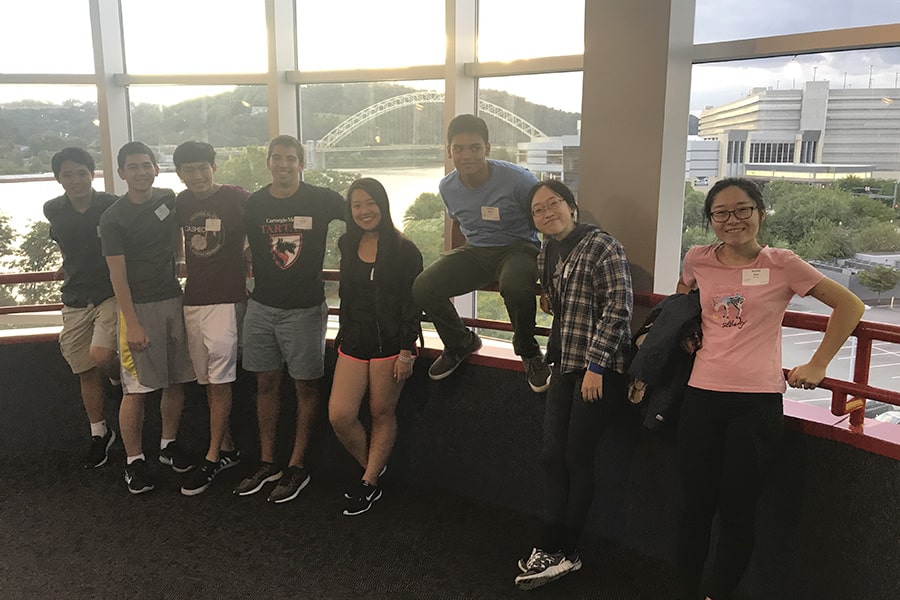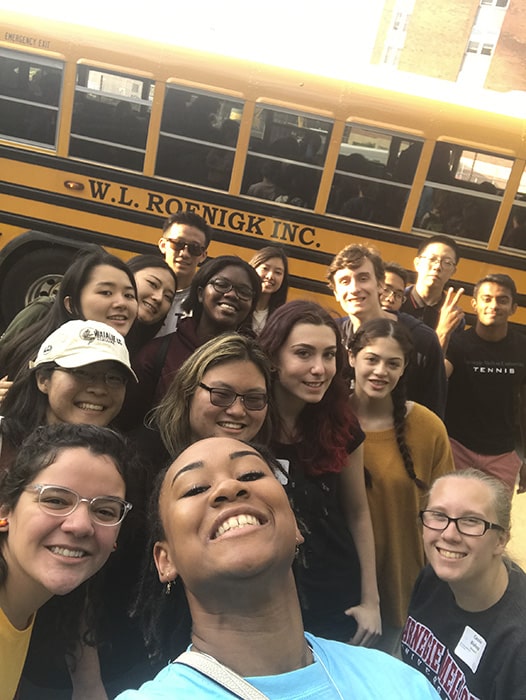Signature Course: EUREKA!: Discovery and Its Impact
Editor's Note: The photography in this story was taken before Carnegie Mellon moved to remote learning in response to the COVID-19 outbreak.
As they make the transition from high school to college, students in the Mellon College of Science (MCS) need to start seeing themselves as scientists and mathematicians. EUREKA!: Discovery and Its Impact helps them do just that.
Taken by every first-year student in MCS, the course introduces students to all of the resources available to them, with guest lecturers from CMU's Student Academic Success Center, the Career Professional Development Center, Counseling and Psychological Services, University Libraries and more. Students in the course also learn important skills, like study strategies, that will help them succeed in their Carnegie Mellon University career and beyond.
This year, EUREKA! is part of CMU's signature course initiative. Over the summer, lead instructor Ken Hovis and his team have worked to adapt the course to the hybrid model of teaching and learning the university will follow this fall. They are making improvements that will enrich the course for the long term and incorporating a technology enhanced learning component.
With up to 260 students enrolled in the class each year, Hovis relies on eight to 12 MCS faculty members and 12 to 15 teaching assistants (TAs) to help teach the course. Students attend a lecture once a week and break into smaller groups of about 18 or 19 students for recitation, where they really get to know one another.
Hovis said the TAs are crucial for community building, one of his focuses for this fall semester.
"We can say something as instructors, but when students hear the same information from upper-class students, it resonates," he said.
Mentors will start working with Hovis and his teaching team before the semester begins, attending a detailed, multi-day training. This year, he's relying on them more than ever. He is working with the Eberly Center to identify tools like Zoom or Slack that the TAs can use to start communicating with students.
"An informal communication tool, like Slack, could help students form relationships in this remote environment. In past years we found that the students who had upper-class mentors had a more meaningful experience, so we're hoping to support that," Hovis said.

Past EUREKA! students visited the Carnegie Science Center. This fall, the EURKEA! teaching team is planning a virtual visit.
Hovis is also focused on transparency. In past years, he sent videos and lesson plans to his TAs and co-teachers each week to let them know how to lead their recitations. This year, he's making those plans available to everyone in an interactive dashboard.
"We want our students to be able to go to one place to get information about our goals for the week, homework assignments, lecture videos, activities — all of this material will be easy to access," Hovis said. "Whether our students are attending class in person or remotely, they will all be on the same page."
In one EUREKA! project, students, faculty and TAs all complete a wellness inventory, evaluating themselves on nine areas of their personal wellness, like physical, emotional or social wellness. Working together, they set personal goals for improvement and keep each other accountable throughout the semester.
"I think it makes it fun that that all of us are in it together," Hovis said. "We we're not always perfect. We always don't meet our goals each week. But we're in it together and we're trying to make each other better. That's something that I know won't change in the fall."
